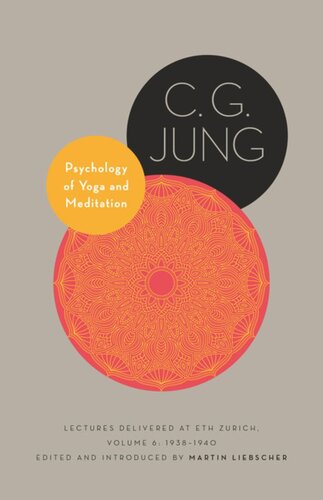

Most ebook files are in PDF format, so you can easily read them using various software such as Foxit Reader or directly on the Google Chrome browser.
Some ebook files are released by publishers in other formats such as .awz, .mobi, .epub, .fb2, etc. You may need to install specific software to read these formats on mobile/PC, such as Calibre.
Please read the tutorial at this link: https://ebookbell.com/faq
We offer FREE conversion to the popular formats you request; however, this may take some time. Therefore, right after payment, please email us, and we will try to provide the service as quickly as possible.
For some exceptional file formats or broken links (if any), please refrain from opening any disputes. Instead, email us first, and we will try to assist within a maximum of 6 hours.
EbookBell Team

4.1
90 reviewsJung's lectures on the psychology of Eastern spirituality—now available for the first time
Between 1933 and 1941, C. G. Jung delivered a series of public lectures at the Swiss Federal Institute of Technology (ETH) in Zurich. Intended for a general audience, these lectures addressed a broad range of topics, from dream analysis to the psychology of alchemy. Here for the first time are Jung's illuminating lectures on the psychology of yoga and meditation, delivered between 1938 and 1940.
In these lectures, Jung discusses the psychological technique of active imagination, seeking to find parallels with the meditative practices of different yogic and Buddhist traditions. He draws on three texts to introduce his audience to Eastern meditation: Patañjali's Yoga Sûtra, the Amitâyur-dhyâna-sûtra from Chinese Pure Land Buddhism, and the Shrî-chakra-sambhâra Tantra, a scripture related to tantric yoga. The lectures offer a unique opportunity to encounter Jung as he shares his ideas with the general public, providing a rare window on the application of his comparative method while also shedding light on his personal history and psychological development.
Featuring an incisive introduction by Martin Liebscher as well as explanations of Jungian concepts and psychological terminology, Psychology of Yoga and Meditation provides invaluable insights into the evolution of Jung's thought and a vital key to understanding his later work.